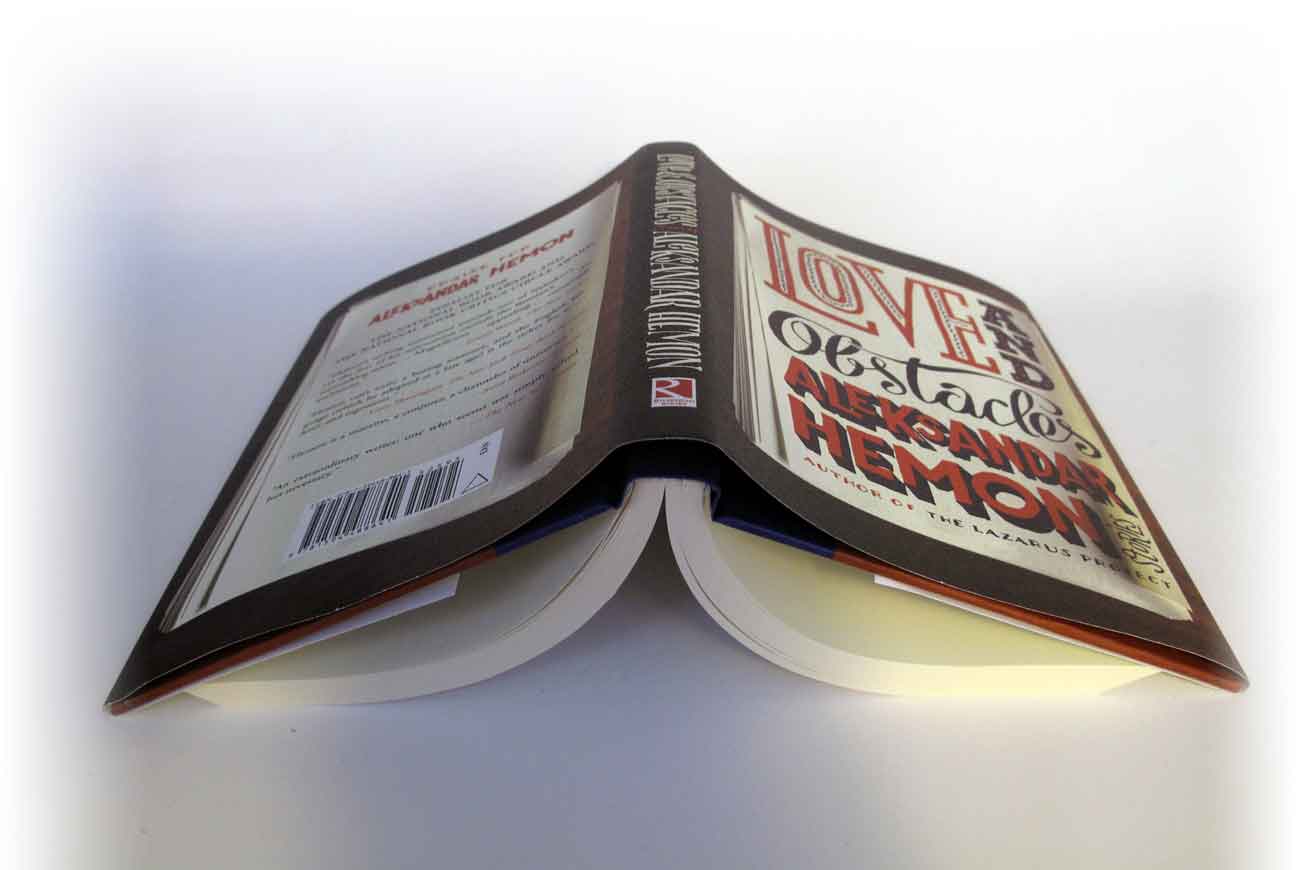Reviews of Love and Obstacles "You make feel nearly giddy with pleasure at how beautifully written, funny, and entertaining [these stories] are, and at the depths of tenderness and seriousness swirling beneath their wry, deceptively offhand surface . . . . Each of these marvelous tales reminds us of how rough and rocky the road to maturity and wisdom can be, and how much joy and damage lie in wait to ambush us along the way." "Hemon shows us the nobility and the absurdity of immigrant life, the cruelty and the openness of American character. He knows both because he is both; and if this in-betweenness makes Hemon a 'nowhere man,' his excellent work also suggests that in between may be the best place for a writer to live. "[Aleksandar Hemon's] sardonic voice propels his fiction, including the eight stories in his new collection, Love and Obstacles. The new stories are characterized by an invigorating approach to the English language, and an observant, knowing, and a sharp-tongued narrator, who, like Hemon, was born in Bosnia, lives in the U.S., and belongs nowhere." "The siege of Sarajevo is the dark cloud that seems ever to drift through the atmosphere of Hemon's fiction, sometimes in the historical periphery, sometimes in the story's present on American television, sometimes in the adjustments of emigre life, casting its shadow on tales that might otherwise read as family comedy out to trace human foibles and -- what shall we call it? -- the existential oddity of being. He writes books of laughter and non-forgetting." "Often compared to Vladimir Nabokov . . . [Hemon] has written four critically praised books . . . [Love and Obstacles] deal[s] mostly with themes of cultural identity, conflict and displacement, often featuring characters of Eastern European origin who have been set adrift and are struggling, in ways both poignant and bitterly humorous, to assimilate America as it assimilates them." "The pattern of leaving and returning, and gaining melancholy wisdom in the process, holds Hemon's linked coming-of-age stories together with drifting beauty. The narrator will be instantly familiar to readers of Hemon: a young exile from Sarajevo ends up in Chicago, becomes a writer and explores what he calls, with tongue in cheek, his "complicated identifications." But the power of the collection is the way Hemon qualifies and recasts liberation as a kind of depletion: "I felt the intense pleasure of giving up," his narrator confesses, "the expansive freedom of utter defeat." Later, he describes "the freedom inherent in erasure."" "What's most appealing about the collection is its discordance. The stories illustrate the tug between assimilation and resistance, between discovering who you are and who you aren't. . . . Hemon has been compared to Vladimir Nabokov, which is understandable. Both climbed inside the English language and used it in a fresh, masterful way. Joseph Conrad did the same, writing in English rather than in his native Polish. But I also sense James Joyce's ghost drifting through Hemon's stories, steeped, as they are, in male ego, sexuality and soul-stirring. What does it mean to be a Bosnian living in America and writing in English? Where is home? Like Joyce, Hemon may have left his homeland, but he cannot stop bringing it to life on the page." "Rather than seize upon this terrifying loss of voice and identity, Love and Obstacles follows the intensive efforts of a would-be writer to find them. The collection could have narrowed and collapsed into writerly self-involvement with this premise - especially because the premise isn't wholly balanced by the larger concerns of recent European history and the American immigrant experience, which figure less significantly in this book than in its predecessors - but the collection instead expands and evolves, its major stories moving from the writer's adolescence to his flawed personal and professional life as an adult, before it concludes with striking experiements in voice appropriation and parallel storytelling." “Bosnian-born Hemon again beautifully
twists the language in this collection of eight powerful and disquieting
stories.... Writing with steely control and an antic eye, Hemon has
assembled another extraordinary work.” “Possessed of a phenomenal gift for translating feelings
into concrete imagery in masterfully structured tales that end in stunning
crescendos, Hemon infuses everything, from a freezer to bees in a hive,
with barbed insights into our instinct for aggression, longing for
connection, and unquenchable need to tell our stories, whether in poems,
letters, drunken orations, or confessions to strangers. Hemon is a
world-class writer of seismic depth, riptide humor, wine-dark language,
and unflinching candor.” “A master of modern literary gamesmanship returns with
a short-story collection that just might be a novel... Though each
is self-contained, the stories benefit from echoes and resonances,
recurring themes and characters.” “In this book of eight short stories by Bosnian American
writer Hemon, the bold, humorous, and unpredictable
writing makes readers forget that love has been coupled with other
nouns in book titles so frequently that it's become cliché. .... Readers
who've enjoyed Hemon's earlier fiction won't be disappointed; readers
who are new to Hemon will be grateful that they've discovered a refreshingly
uncorrupted voice.” |
